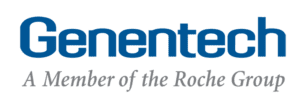
Genentech, a member of the Roche Group, has shared new 2-year data from Part 2 of FIREFISH, a Phase 2/3 global study evaluating Evrysdi (risdiplam) in infants aged 1-7 months at enrollment with symptomatic Type 1 SMA. The data showed Evrysdi continued to improve motor function between months 12 and 24, including the ability to sit without support. The study also showed Evrysdi continued to improve survival, improve ability to feed orally and reduce the need for permanent ventilation*. Exploratory data suggested Evrysdi continued to improve the ability to swallow and reduce hospitalizations compared to the natural course of Type 1 SMA. Safety for Evrysdi was consistent with its established safety profile.
The primary endpoint of the study was the percentage of infants able to sit without support for at least five seconds at month 12. At 12 months, infants treated with Evrysdi demonstrated improved ability to sit without support for at least five and 30 seconds. Twenty-four month data showed continued improvements from month 12, with 61% (25/41) vs. 29% (12/41) able to sit without support for at least five seconds and 44% (18/41) vs. 17% (7/41) able to sit without support for at least 30 seconds, as assessed by the Gross Motor Scale of the Bayley Scales of Infant and Toddler Development Third Edition (BSID-III). Importantly, infants treated with Evrysdi maintained the ability to feed orally (92%; 35/38) at month 24. Further, exploratory data suggest similar maintenance in ability to swallow (95%; 36/38). In the natural course of the disease, infants with Type 1 SMA older than 12 months generally require feeding support.
Ninety-three percent of infants (38/41) were alive after 24 months of treatment. Eighty-three percent of patients (34/41) were alive and free from permanent ventilation after 24 months, an improvement compared to the natural course of the disease. There were no new deaths between months 12 and 24. Without treatment, the median age of death or permanent ventilation is 13.5 months. In addition, fewer hospitalizations were observed during the second year of treatment with Evrysdi compared with the natural course of the disease, with 34% of infants (14/41) not requiring hospitalization during 24 months of treatment. Additional findings suggested that Evrysdi continued to improve measures of the Hammersmith Infant Neurological Examination 2 (HINE-2) at month 24 vs. month 12, including being able to hold their head upright (63% vs. 44%), roll from supine to prone (44% vs. 10%), stand with support (15% vs. 5%), and walk** (4% vs. 2%). Continued improvements were also observed in CHOP-INTEND*** total score, with a larger percentage of patients achieving a score of at least 40 by month 24 (76%; 31/41) than month 12 (56%; 23/41). In the natural course of the disease, children with Type 1 SMA rarely reach a CHOP-INTEND total score of 40 points.
The adverse events and serious adverse events observed were consistent with previous studies. The most common adverse events were upper respiratory tract infection (54%), pneumonia (46%), pyrexia (44%), constipation (29%), nasopharyngitis (17%), bronchitis (15%), diarrhea (15%), and rhinitis (12%). The incidence of serious pneumonia declined by approximately 3-fold between the first and second 12-month periods of FIREFISH Part 2. The most common serious adverse events were pneumonia (39%) and respiratory distress (7%). There were no drug-related adverse events leading to withdrawal or treatment discontinuation.
Roche leads the clinical development of Evrysdi as part of a collaboration with The SMA Foundation and PTC Therapeutics. More than 3,000 patients are now treated with Evrysdi in clinical trial, compassionate use, and real-world settings.
*No tracheostomy or BiPAP ≥16 hours per day continuously for >3 weeks or continuous intubation >3 weeks, in the absence of, or following the resolution of, an acute reversible event
**“Walk” includes patients able to “bounce” or “cruise”
***Children’s Hospital of Philadelphia Infant Test of Neuromuscular Disorders


